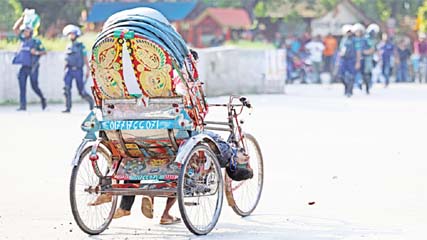Doubts and delays: Questions over July 36 Genocide Trial

Barrister Solaiman Tushar :
There have been some incidents that appear controversial in the recent activities and performance of the International Crimes Tribunal (Bangladesh), one of which is the appointment of the leader of the Bangabandhu Awami Ainjibi Parishad as a prosecutor of the Tribunal. However, this appointment was later revoked in the face of intense criticism. Family members of the martyrs of the July-August Revolution have staged protests in front of the International Crimes Tribunal, alleging compromises with the accused in exchange for financial gains. Prosecutors have also claimed that confidential information has been leaked to the accused.
The most horrific genocide in the history of Bangladesh occurred in July and August 2024, an event now referred to as “July 36.” According to the United Nations, over 1,400 innocent and unarmed individuals were brutally killed, including a significant number of children. More than 30,000 people were injured, and over 500 lost their eyesight. Concerns of fraud in the trial of the July genocide have already emerged. Even before the bloodstains have dried, various questions and doubts have arisen regarding the judicial process. Families of the martyrs have expressed their anger, particularly over several controversial decisions made by the Ministry of Law under Professor Asif Nazrul.
Authorities have taken steps that seemingly favour the perpetrators of the genocide. Among these is the swift amendment of the law, which has been named the International Crimes Tribunal (Amendment) Ordinance, 2024. This amendment now allows appeals to be made to the Appellate Division of the Supreme Court against interim orders of the International Crimes Tribunal (Bangladesh) in limited cases. Previously, no such provision existed. Critics argue that this will significantly slow down the trial process and give the accused more opportunities to delay proceedings.
Additionally, Article 11(8) of the law now permits the appointment of foreign lawyers, a provision that did not exist before. As a result, perpetrators of the genocide could potentially hire prominent international lawyers using illicit funds.
Despite being labelled an “international” tribunal, concerns have been raised regarding the experience of the judges appointed to the International Crimes Tribunal (Bangladesh). Furthermore, junior lawyers have been appointed as prosecutors in all positions except that of the Chief Prosecutor. Many of these appointees lack significant trial experience, raising doubts about their ability to handle complex legal battles against the defence team. Notably, some prosecutors, apart from two or three individuals, have limited courtroom experience. In a particularly concerning case, a lawyer who was only enrolled in the Judges’ Court in 2021 has been appointed as a prosecutor. Historically, no international tribunal-including the Special Court for Sierra Leone or the International Criminal Tribunal for Rwanda-has appointed such junior legal professionals to prosecution roles. While BNP-Jamaat leaders were executed during past authoritarian regimes, the tribunals at the time were staffed with the most experienced legal professionals in the country.
The appointment of Afroz Parveen Sylvia, a leader of the Bangabandhu Awami Ainjibi Parishad, as a prosecutor on 27 March-just before the Eid holidays – has also drawn criticism. It has been suggested that this appointment was aimed at shielding those in power and facilitating the transfer of sensitive information. Although the appointment was ultimately revoked following public outcry, it remains crucial to disclose who was responsible for the decision.
Despite clear evidence of the July massacre and expressions of frustration from the tribunal, some accused individuals are reportedly being allowed to flee the country without being arrested. Notably, an arrest warrant was issued against Professor Zafar Iqbal, identified as one of the masterminds behind the July massacre and an alleged associate of Sheikh Hasina in various misdeeds. However, he remains at large, raising serious questions about the commitment to justice in this case.
On 24 March 2025, family members of the martyrs of the July-August Revolution protested in front of the International Crimes Tribunal, making various allegations, including claims that significant sums of money were exchanged in return for compromises with the accused.
Ultimately, it is imperative to provide the nation with clear answers as to why so many questions and doubts persist regarding the trial of the largest genocide in Bangladesh’s history.
(The writer is an Advocate of the Supreme Court of Bangladesh and
a researcher, International Law).
